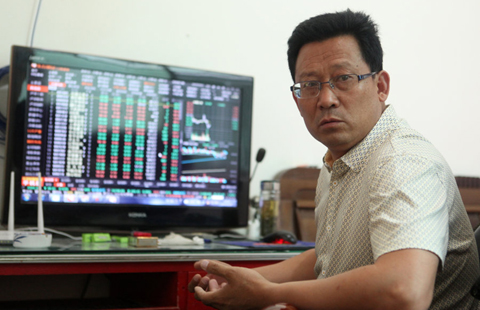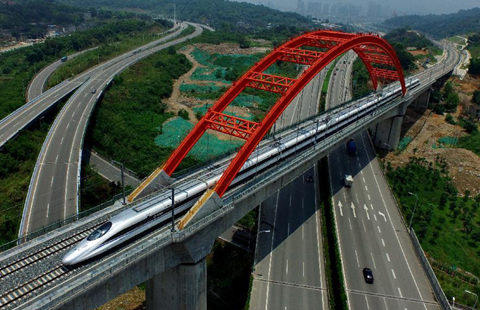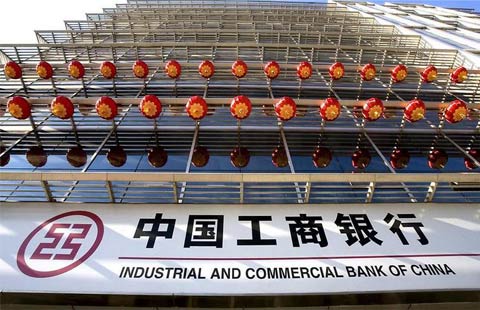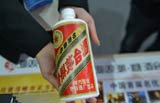Yuan to be freely convertible soon in Shanghai FTZ
By Chen Jia (China Daily) Updated: 2015-06-05 07:07
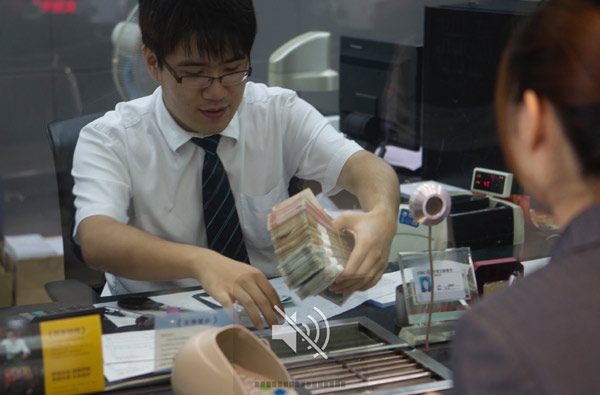 |
|
A teller undertaking a customer transaction at a branch of Industrial and Commercial Bank of China Ltd in the Shanghai free trade zone. Enterprises in the zone had settled cross-border capital flows of 160 billion yuan ($25.8 billion) through free trade accounts by June 1. [Gao Erqiang/China Daily] |
A senior central bank official said on Thursday he expected the Chinese currency to be freely convertible soon in the China (Shanghai) Pilot Free Trade Zone, as a pilot program is set to open the country's capital account.
"The Shanghai free trade zone is ready to be the first area in China to allow free use of the yuan and have an open capital account," said Zhang Xin, deputy director at the Shanghai branch of the People's Bank of China.
Policies and market mechanisms are being prepared to support the reform in Shanghai, he said at a financial industry seminar being held in the city.
Figures show that by Monday, enterprises in the zone had settled cross-border capital flows of 160 billion yuan ($25.8 billion) through free trade accounts, and more than 70 billion yuan of cross-border financing.
"It has been proven that the free trade zone is not a channel for speculative capital inflows or arbitrage investment," said Zhang.
Shanghai has already prepared a system to regulate the capital account, under which currency exchange is still controlled, he said.
That general policy framework for the pilot program includes provision for the central bank and related government departments to make market-oriented rules.
Enterprises and financial institutions will independently decide cross-border capital flows without approval from the regulator, while a mass information management system will provide data for supervision.
Zhang said emergency measures are also ready, based on a 24-hour big-data monitoring system, to prevent unexpected large cross-border capital flows and ensure financial stability in the domestic market.
During the same seminar, Guo Qingping, vice-governor of the central bank, said the next step for China's financial reform is to achieve a convertible capital account and make the currency available more freely for international trade and investment.
PBOC Governor Zhou Xiao-chuan said in April that China plans to carry out reforms this year to make the yuan capital account convertible.
Those will include easing controls on cross-border portfolio investment by individuals, or the QDII2 (Qualified Domestic Institutional Investor) scheme. They will also see a further opening of China's capital markets, including the launch of the Shenzhen-Hong Kong Stock Connect, fewer controls on cross-border capital raising, and a revision of foreign exchange regulations to accommodate freer capital flow.
The Shanghai free trade zone will also be a pilot of all these reforms, said Zhang.
Jing Ulrich, vice-chairwoman of Asia Pacific at JPMorgan Chase & Co, said this week she expected the Shanghai pilot to be expanded soon to more areas to accelerate the country's financial reform.
"To open the capital account only in Shanghai would play a limited role to the free use of yuan," she said.
Qu Hongbin, chief economist in China at HSBC Holdings Plc, said: "Convertibility of the yuan would mean a freer currency and a more independent monetary policy that can respond to domestic economic fluctuations.
"It furthers the process of the yuan's internationalization, which will result in increased convenience and accessibility for Chinese companies, consumers and institutional investors," he said.
"These domestic policy concerns will continue to motivate additional reforms this year, and as a result make the yuan more eligible for Special Drawing Rights inclusion in the upcoming International Monetary Fund discussions."
- Dark days for coal industry as glut worsens
- Regulators target 'abuse' of IPR
- Yuan to be freely convertible soon in Shanghai FTZ
- Xiaomi moves further up the wearable ranks
- Top 10 largest global public Internet companies
- Auto spare parts market in Mena booms, attracts Chinese investment
- China's theater industry at a loss for words
- Chinese shares close mixed Thursday



